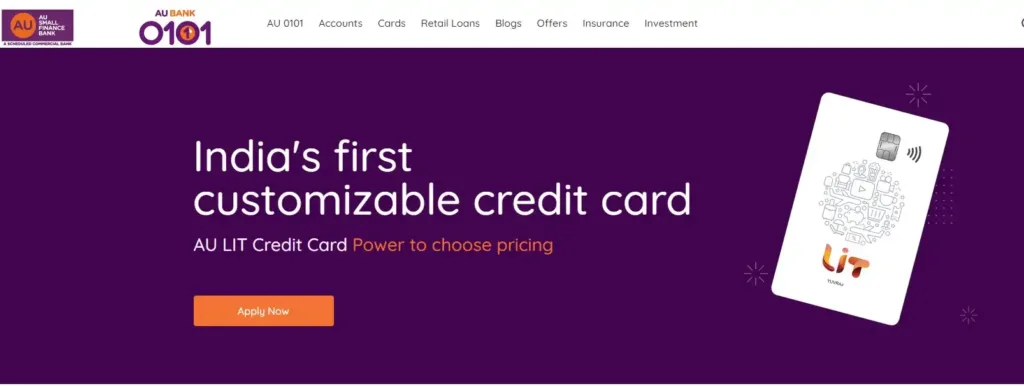
Is Your Digital Gold Safe? The Shocking Truth SEBI Just Revealed
Are those shiny ‘digital gold’ ads really golden opportunities—or ticking time bombs? SEBI’s latest warning reveals a hidden danger thousands of Indians may be ignoring. What’s really at stake in the booming digital gold craze—and why are regulators sounding the alarm now?
In 2025, digital gold has rapidly gained popularity as a convenient and accessible investment option, promising easy online purchase and secure storage without the hassles of physical gold. However, the Securities and Exchange Board of India (SEBI) has issued strong warnings clarifying that these digital gold products offered by various online platforms are not regulated under SEBI’s jurisdiction. They are distinct from SEBI-regulated gold investment products like Gold ETFs or Electronic Gold Receipts, and therefore lack investor protection mechanisms. This regulatory gap exposes investors to significant risks including counterparty and operational failures. As digital gold continues to attract millions, understanding the precise regulatory stance and the dangers involved becomes essential for safeguarding your investments.
The Allure of Digital Gold: Convenience Meets Trust
Digital gold, or e-gold, has exploded in popularity across India as a convenient way to buy gold online—often for as little as Rs. 10—with promises of safe, physical gold storage. Platforms like Tanishq, MMTC-PAMP, and Augmont have popularized the concept, especially among millennials and urban investors seeking hassle-free diversification.
The convenience is undeniable: no visits to jewelers, instant purchases via app, and digital tracking of holdings. During uncertain economic times, gold remains a trusted asset class, fueling demand for nimble investment options.
The Surprising Regulatory Grey Zone
But here’s the crucial hidden fact: SEBI explicitly states that these digital gold products operate completely outside its regulatory framework. Unlike gold ETFs or exchange-traded commodity derivatives, digital gold platforms are neither classified as securities nor regulated as commodity derivatives.
This means they carry no protection under organized securities market laws, exposing investors to counterparty risks. If the platform, vault, or refiner faces financial trouble or fraud, investors may find themselves unable to reclaim their gold or funds.
The Risks You Rarely Hear About
- Counterparty Risk: Your digital gold is essentially a private contract. If the seller or custodial vaults fail, your investment security is in jeopardy.
- Operational Risk: Cybersecurity vulnerabilities and lack of transparency increase exposure to hacking, fraud, or technology failures.
- No Investor Protection: SEBI’s warning is clear—none of the investor safeguards that come with regulated financial products apply here.
- Valuation and Liquidity Concerns: Market pricing for digital gold isn't always transparent, and converting back to physical or cash may involve hidden charges or delays.
How Can Investors Verify if Digital Gold offerings are SEBI Regulated
Investors can verify if digital gold offerings are SEBI regulated by following these steps:
- Check SEBI Registration: Visit SEBI’s official website and use their public database to confirm if the platform or intermediary offering digital gold is registered as a market participant (such as a stockbroker, depository participant, or commodity derivative broker).
- Verify Product Classification: Confirm if the digital gold product is offered as a security (e.g., Gold ETFs or Electronic Gold Receipts) or commodity derivative listed on recognized exchanges like NSE or BSE, as only these are under SEBI regulation.
- Look for Regulatory Disclosures: Genuine SEBI-regulated products will prominently display their registration details, SEBI license numbers, and compliance certifications on their websites and marketing materials.
- Cross-Check Exchanges: If the digital gold is linked to commodity exchanges (like MCX) or stock exchanges (NSE), verify trading status and product details on these exchange websites.
- Avoid Platforms Without Regulation: If the digital gold seller or product lacks SEBI registration or exchange listing, investors should treat it as unregulated and higher risk, per SEBI’s warnings.
- Consult SEBI Notices and Alerts: Regularly check SEBI’s investor alerts and announcements for updates on unregulated digital gold platforms and scams.
Differences Between SEBI Regulated and Unregulated Gold Products
Here is a clear comparison table outlining differences between SEBI-regulated gold products and unregulated digital gold offerings:
| Aspect | SEBI-Regulated Gold Products | Unregulated Digital Gold |
| Regulatory Body | Regulated by SEBI | Not regulated by SEBI |
| Examples | Gold ETFs, Electronic Gold Receipts (EGRs), Commodity Derivatives | Digital gold sold via online platforms, apps |
| Legal Classification | Classified as securities or commodity derivatives | Not classified as securities or commodity derivatives |
| Investor Protection | Strong investor safeguards, grievance redressal via SEBI | No investor protection or formal dispute mechanisms |
| Custody of Physical Gold | Physical gold stored in accredited vaults with third-party custodians | Custody arrangements vary, often opaque |
| Pricing Transparency | Transparent market-driven pricing on exchanges | Pricing may lack transparency, vary by platform |
| Liquidity | High liquidity via recognized stock exchanges | Limited liquidity, possible delays in redemption |
| Disclosure and Transparency | Mandatory regular disclosures under SEBI norms | Minimal required disclosures |
| Risk Factors | Lower counterparty, operational risks due to regulations | Higher risk of fraud, operational failure |
| Regulatory Oversight | Continuous monitoring and audits by SEBI | No regulatory oversight |
Why SEBI’s Warning Matters in 2025
SEBI’s 2025 notice arrives amid rising scam attempts impersonating SEBI officials, fraudulent communications soliciting payments, and increasing digital gold promotion by online platforms without adequate disclosure.
The boom in digital gold investing, combined with these risks, prompted regulators to protect investors from being blindsided by the apparent ease and affordability of digital gold investments.
What SEBI Recommends
- Prefer SEBI-regulated gold products like Gold ETFs, Electronic Gold Receipts (EGRs), or commodity derivatives traded on recognized exchanges.
- Verify the regulatory status of platforms and intermediaries before investing.
- Watch out for marketing that promises unrealistic returns or hides key risks.
- If investing in digital gold apps, limit exposure and stay vigilant on platform credibility and custodial arrangements.
What Protections do SEBI-Regulated Gold Investments Provide
SEBI-regulated gold investments provide several critical protections to investors that are absent in unregulated digital gold products:
- Investor Safety and Transparency: SEBI-regulated products such as Gold ETFs and Electronic Gold Receipts (EGRs) are mandated to follow strict disclosure norms, ensuring transparency about asset backing, valuations, and charges. This reduces risks of fraud and misrepresentation.
- Regulatory Oversight: These products operate under SEBI’s continuous supervision, which monitors compliance with securities laws, audits, and governance standards to protect investors’ interests.
- Custodial Security: Physical gold backing SEBI-regulated instruments is stored in accredited vaults with third-party custodians, reducing counterparty risk.
- Liquidity and Marketability: Gold ETFs and similar regulated securities are traded on recognized stock exchanges (NSE, BSE), offering high liquidity and fair market pricing, unlike unregulated digital gold with limited convertibility.
- Investor Grievance Redressal: Investors can seek resolution through SEBI’s grievance mechanisms and the Securities Appellate Tribunal if disputes arise, providing a formal safety net.
- Price Discovery and Fair Valuation: Market-driven pricing ensures investors buy or redeem gold close to actual commodity prices, reducing hidden costs that may exist in digital gold schemes.
How is SEBI Planning to Regulate Digital Gold Markets in the Future
SEBI is actively exploring regulatory frameworks to bring digital gold markets under its purview while balancing innovation and investor protection. Key directions in SEBI’s future regulation plans likely include:
- Defining Digital Gold as a Security or Commodity Product: SEBI is considering classifying digital gold either as a security or as a commodity derivative. This would subject digital gold offerings to existing regulatory frameworks covering transparency, disclosure, and custody.
- Mandatory Registration & Licensing: Platforms offering digital gold may be required to register with SEBI and obtain licenses similar to brokers or custodians in securities markets, ensuring accountability and compliance.
- Stricter Custody Norms and Mandatory Third-party Vaulting: To reduce counterparty risks, SEBI aims to enforce stringent rules on gold storage, mandating third-party custodianship and regular audits of gold backing digital units.
- Standardized Disclosures & Investor Education: SEBI plans to roll out clearer product information norms and launch investor awareness programs explaining risks, rights, and product differences between digital gold and regulated gold investments.
- Price and Liquidity Transparency: SEBI may impose rules to improve pricing transparency and ensure liquidity mechanisms allowing investors seamless buying and redemption similar to ETFs.
- Technology and Cybersecurity Standards: With digital gold reliant on tech platforms, SEBI intends to enforce cybersecurity protocols and technology audits to protect investor data and prevent fraud.
Actionable Takeaways for Indian Investors
- Treat digital gold investments with caution—they are not risk-free or regulated financial securities.
- Prioritize transparency and regulation over ease and flashy marketing.
- Keep abreast of SEBI advisories and verify product legitimacy rigorously.
- Diversify gold holdings through a mix of physical, ETFs, and regulated instruments.
The Road Ahead: What Future Regulations Might Hold
As the digital gold market evolves, India’s regulators are exploring frameworks to close regulatory gaps without stifling innovation. The coming years could see enhanced rules around custody, disclosures, and investor protection.
Investors should watch regulatory developments closely—what starts as an unregulated promise today could transform into a safer, transparent marketplace tomorrow.
Disclaimer: The use of any third-party business logos in this content is for informational purposes only and does not imply endorsement or affiliation. All logos are the property of their respective owners, and their use complies with fair use guidelines. For official information, refer to the respective company’s website.





























